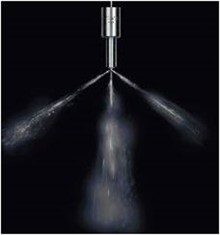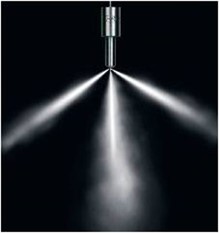Did you know that all gasoline sold in the United States include detergents? The U.S. Environmental Protection Agency (EPA) requires detergents to keep engines clean and efficient. Engine manufacturers have identified that detergents added to both gasoline and diesel fuel help to keep engines clean. Clean engines improve horsepower, restore lost fuel efficiency, reduce emissions, and improve overall performance of engine after-treatment components.
Gasoline Engines
In the late 1980s, more advanced fuel injection technology became widely used in new cars. Automakers became concerned with fuel additives. Injectors often clogged because of inadequate levels of detergent additives in gasoline.
The automakers began to recommend specific brands of gas with adequate content to their customers. However, some fuel marketers were still not using detergents. In a move supported by the auto industry, the federal government mandated specific levels of additives. The EPA introduced the minimum gasoline detergent standard in 1995.
As engines continued to evolve, they become less forgiving to engine deposits. Automakers have seen a return of performance robbing deposits.
Today's cars and trucks have sophisticated fuel injection systems and engines. These systems inject the right amount of fuel into the engine at the right time. The fuel burns efficiently to provide optimum vehicle emissions control, performance, fuel economy, and durability.
Deposits that form on fuel injectors, intake valves, and in combustion chambers interfere with efficient fuel delivery and combustion. Automakers are finding that increases in the level and changes in the types of detergents combat this problem.
FS Clean Flow gasoline has an increased level of detergent to keep deposits from forming. It also works to remove deposits formed from using typical gasoline.
Diesel Engines
Diesel engines have also gone through significant changes focused on improving combustion, increasing fuel efficiency, and reducing emissions. Modern high-pressure common rail fuel systems put new and added stresses on diesel fuel. Deposit control is important in avoiding deposit build up. Loss in performance and/or fuel system component failures are more likely in engines that experience deposit build up.
Unlike gasoline, diesel fuel does not have requirements to include detergent to keep engines clean. Many standard diesel fuels sold today contain no detergent at all.
Diesel engine manufacturers and heavy equipment OEM’s have worked with industry organizations to develop standard engine tests. These tests show the benefits of using diesel fuel containing detergents on fuel injector operation and efficiency, more complete combustion, and a reduction in emissions. These benefits result in maximizing fuel economy and engine horsepower, while also reducing emissions and improving the efficiency of aftertreatment systems.
In these industry tests, Dieselex Gold proves to inhibit the formation of engine deposits. It even removes deposits formed from using standard diesel fuels. Dieselex Gold diesel fuel is engineered to clean injectors and engines.

Image 1. Deposits formed on the tips of injectors restrict the flow of gasoline and diesel fuel. This can also hinder delivery of fuel to the combustion chamber. This restricted flow robs the engine of efficiency and power.

Image 2. Dieselex Gold and FS Clean Flow inhibit deposits from forming and remove any deposits caused by using other fuels. This improves the flow and delivery of fuel to the combustion chamber and restores lost efficiency and power.